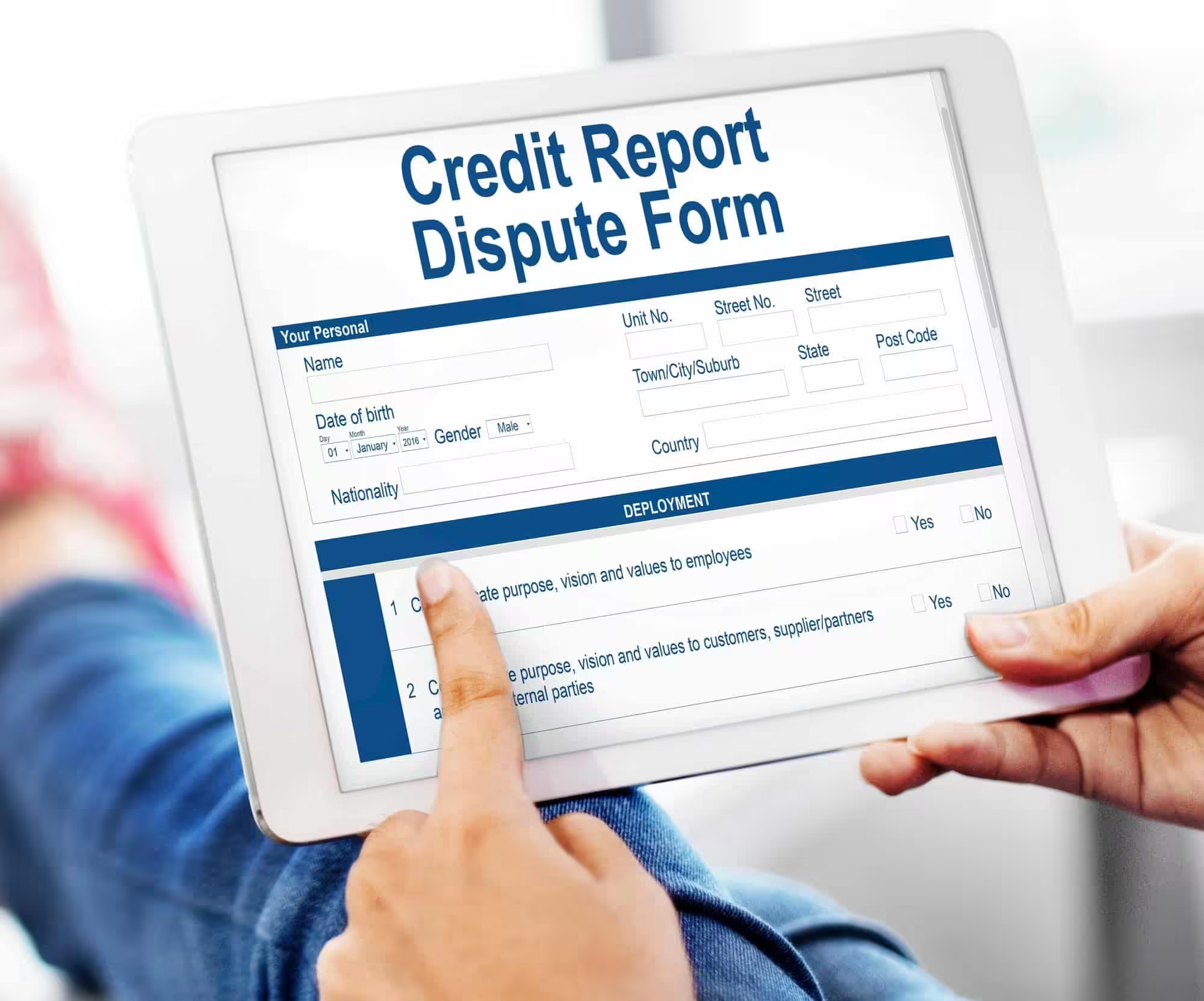Fair Credit Reporting Act (FCRA) Attorney

Dealing with errors on your credit report can be overwhelming. To even have a chance at getting erroneous information removed, you have to deal with big companies, and it can be hard to get their attention. A Fair Credit Reporting Act (FCRA) Attorney supports you in seeking credit report accuracy and fairness. A credit attorney or law firm specializing in FCRA cases can provide essential legal support for resolving credit reporting issues. For qualifying cases, consumers do not have to pay upfront costs for legal services, as attorney’s fees can be recovered from the credit reporting agencies if a claim is successful. Consumer advocates and legal professionals play a key role in protecting consumer rights under the FCRA.
We will explore the essential role of an FCRA attorney, the services they provide, and how they can help you safeguard your rights under this crucial federal law. Whether you’ve recently discovered an error on your credit report or want to prevent future issues, read on to discover how a fair credit reporting act attorney near attorney can be your advocate in the complex world of consumer credit. Additionally, understanding your rights under federal laws such as the Fair Debt Collection Practices Act can empower you when dealing with debt collectors.
Short Summary
- Understand the Fair Credit Reporting Act (FCRA) and identify common credit reporting errors.
- Choose an experienced FCRA attorney with a good reputation for communication, fees, and costs to protect your rights under the law. Clients may be entitled to recover attorney’s fees when disputing inaccuracies in their credit reports.
- Working with an FCRA attorney can help prevent future issues by monitoring & maintaining accurate credit reports.
Understanding the Fair Credit Reporting Act (FCRA)
The Fair Credit Reporting Act (FCRA) is a federal law designed to regulate the collection, dissemination, and use of consumer credit information. This law governs the actions of credit reporting agencies and consumer reporting agencies, such as Experian, Equifax, and TransUnion, as well as furnishers (companies that extend credit). The primary objective of the FCRA is to ensure that consumers have access to accurate, up-to-date information about their credit accounts while protecting their rights and privacy. A consumer report is a comprehensive document compiled by credit reporting agencies that contains an individual’s financial, personal, and sometimes criminal history information, and it plays a significant role in credit, employment, and housing decisions. The FCRA restricts the sale of reports only to people who have a legally acceptable reason for receiving them, and consumer reports are used by lenders to determine whether consumers can obtain credit.
Under the FCRA, consumers are afforded certain rights, including the ability to access their credit reports, dispute inaccurate or incomplete information, and limit who can access their reports. Consumers have the right to dispute inaccurate information under the FCRA to ensure the accuracy of their consumer reports. A consumer reporting agency has legal obligations to ensure accuracy in credit reports and background checks. Furthermore, the act imposes stringent requirements on credit reporting agencies to ensure the fair and accurate reporting of consumer information. The FCRA also requires that a consumer reporting agency reinvestigate any disputed information free of charge. Failure to comply with these requirements can result in serious consequences for both credit reporting companies and the consumers they serve. The Federal Trade Commission oversees enforcement of the FCRA and provides guidance to consumers.
Definition and Purpose
The Fair Credit Reporting Act (FCRA) is a pivotal federal law that governs the collection, use, and dissemination of consumer credit information. Enacted to protect consumers from inaccurate or unfair credit reporting practices, the FCRA mandates that credit reporting agencies (CRAs) maintain precise and current information. This law ensures that consumers have the right to access their credit reports, dispute any inaccuracies, and expect CRAs to follow reasonable procedures to guarantee the maximum possible accuracy of the information in their credit reports. By enforcing these standards, the FCRA aims to uphold fair credit reporting and safeguard consumer rights.
Credit Reporting Agencies and Their Responsibilities

Credit reporting agencies, also known as credit bureaus, play a crucial role in the financial lives of consumers. These agencies collect and maintain information about individuals’ credit history, including payment history, credit accounts, and public records, as well as how collection agencies report unpaid debts and medical bills to credit bureaus. The information collected forms a consumer’s credit file, which is used to assess creditworthiness. The three major credit reporting agencies in the United States are Equifax, Experian, and TransUnion. These agencies are responsible for providing accurate and up-to-date information to lenders, creditors, and other authorized parties. Tenant screening agencies are specialized consumer reporting agencies that compile background reports for landlords and must also comply with the FCRA.
Under the Fair Credit Reporting Act (FCRA), credit reporting agencies have several responsibilities, including:
- Maintaining accurate and complete information about consumers.
- Providing consumers with a free credit report once a year.
- Providing consumers with a free annual report and the right to request a free report from each agency.
- Investigating and resolving disputes in a timely manner. Credit reporting agencies are required to reinvestigate any disputed information within 30 days of receiving the claim.
- Providing consumers with a copy of their credit report upon request.
- Maintaining accurate and complete information about consumers.
- Providing consumers with a free credit report once a year.
- Allowing consumers to dispute errors on their credit report.
- Investigating and resolving disputes in a timely manner.
- Providing consumers with a copy of their credit report upon request.
Credit reporting agencies must also comply with federal laws and regulations, including the FCRA and the Gramm-Leach-Bliley Act. Failure to comply with these laws can result in significant fines and penalties. By understanding the responsibilities of credit reporting agencies, consumers can better protect their credit history and ensure that their financial information is accurately represented.
The Role of a Fair Credit Reporting Act Attorney
To navigate the intricacies of the FCRA and to protect your rights, it’s essential to have an experienced advocate on your side – an FCRA attorney. These legal professionals specialize in safeguarding your rights by disputing errors on your credit report, negotiating claims against credit agencies, and potentially taking legal action. A credit attorney or credit lawyer at a law firm can represent clients in credit reporting cases, including class actions and class action litigation. In related matters, such as defending against aggressive collection, you may need to consult a debt collection defense attorney. An FCRA attorney is well-versed in the complexities of the FCRA, ensuring that your rights are upheld and that credit reporting companies are held accountable for their actions. Many clients do not pay upfront for credit reporting attorney services; payment is contingent upon winning the case. Clients may also be entitled to recover attorney’s fees when disputing inaccuracies in their credit reports.
By working with an FCRA attorney, you can rest assured that your credit report is in good hands. They will provide you with expert guidance on the dispute process, ensuring that any inaccuracies are addressed promptly and thoroughly. Additionally, an FCRA attorney can help you recover damages if your rights have been violated, including financial losses, emotional distress, and statutory damages of up to $1,000 per violation. FCRA attorneys can file lawsuits, including fcra lawsuits, on behalf of clients who have been negatively affected by credit reporting errors. The credit reporting agencies must convey the results of the investigation to you once it is complete.
With their support, you can confidently address any credit reporting issues and safeguard your financial future.
Expertise and Services
Fair Credit Reporting Act attorneys are specialized legal professionals dedicated to protecting consumers from credit reporting errors and FCRA violations. These attorneys, often referred to as credit lawyers or credit attorneys, possess in-depth knowledge of credit reporting laws and regulations, including the FCRA and relevant state-specific laws. Credit lawyers frequently handle class actions and class action litigation related to FCRA violations, representing groups of consumers in legal proceedings against credit reporting agencies or employers. Their services encompass disputing inaccuracies on credit reports, initiating lawsuits against non-compliant credit reporting agencies, and guiding consumers through the intricate dispute process. Additionally, FCRA attorneys assist consumers in obtaining their free credit reports and offer strategies to improve credit scores. By leveraging their expertise, these attorneys ensure that consumers’ rights are upheld and that credit reporting agencies adhere to legal standards. Many FCRA attorneys are also members of a national association dedicated to consumer protection law.
Credit Report Disputes

The first step in addressing credit report errors and a credit dispute is to dispute them with the credit reporting agencies. This process can be complex, requiring a thorough understanding of the FCRA’s requirements and the submission of all relevant documentation. An FCRA attorney’s expertise is invaluable in facilitating credit disputes, ensuring that your dispute meets the legal requirements and navigating the complexities of the credit reporting system. FCRA attorneys help consumers dispute inaccurate information and challenge inaccurate reporting or incorrect information in their credit reports, protecting your rights under the law.
Credit bureaus have the responsibility to conduct a reasonable re-investigation when a consumer files a credit dispute.
Common credit report errors that an FCRA attorney can help you dispute include false credit reporting, identity theft accounts showing up on your report, your credit report showing you are deceased when you are not, or someone else’s accounts showing up on your credit report. If the credit reporting agency fails to correct the incorrect reporting, they may be liable for damages plus attorney’s fees and costs.
By partnering with an FCRA attorney, you can have peace of mind knowing that your dispute is being handled professionally and efficiently.
Negotiating Claims
Apart from disputing credit report errors, an FCRA attorney can also assist in negotiating claims with credit reporting agencies. A breach of the FCRA can result in several consequences. These may include statutory damages, actual damages, attorneys’ fees and costs, and sometimes punitive damages.
An experienced FCRA attorney can effectively negotiate on your behalf, ensuring that you receive fair compensation for any harm caused by inaccuracies in your credit report. Additionally, an experienced FCRA attorney can help clients recover attorney’s fees as part of the compensation for any harm caused by inaccuracies in their credit report.
Legal Action
In some cases, legal action may be necessary to protect your rights under the FCRA. Initiating legal action involves filing a complaint and either proceeding to trial or working towards a settlement. This complex process requires a deep understanding of the law and legal procedures, making the expertise of an FCRA attorney invaluable. Clients may be entitled to recover attorney’s fees if they successfully pursue legal action for FCRA violations.
By working with an FCRA attorney, you can pursue potential damages through litigation, ensuring that your rights are protected and that credit reporting agencies are held accountable for their actions.
Identifying Common Credit Reporting Errors

To protect your financial future, it’s essential to be vigilant in identifying potential credit reporting errors. Common errors include false credit reporting, identity theft accounts showing up on your report, your credit report showing you are deceased when you are not, or someone else’s accounts showing up on your credit report. Inaccurate information or incorrect information in your credit report can result in being negatively affected when applying for a car loan or other types of credit. These inaccuracies can have significant consequences, potentially affecting the approval of credit cards or loans, insurance costs, and even job prospects. Many employers use credit reports to make hiring decisions.
To identify and address any inaccuracies in your credit report, it’s recommended to request your free credit reports from annualcreditreport.com. By regularly reviewing your credit reports from credit reporting agencies and credit reporting bureaus, you can ensure that your financial information is accurate and up-to-date, reducing the risk of future credit reporting issues with any credit bureau.
Common FCRA Violations
The Fair Credit Reporting Act (FCRA) is a crucial federal law that safeguards consumers by regulating the collection, use, and dissemination of their credit information. However, credit reporting agencies and furnishers sometimes fail to comply with these regulations, leading to violations that can significantly impact consumers. Here are some common FCRA violations:
- Furnishing Inaccurate or Incomplete Information: Credit reporting agencies and furnishers are required to ensure the accuracy and completeness of the information they provide. When they fail to do so, it can result in significant harm to consumers. Inaccurate reporting by a collection agency or tenant screening agencies is a common source of FCRA violations, often leading to errors on credit reports and background checks.
- Failing to Follow Dispute Procedures: If a consumer disputes an error on their credit report, the credit reporting agency must conduct a reasonable investigation. If the error is not verified within 30 days, it must be corrected or deleted.
- Not Providing Consumers with a Copy of Their Credit Report: Consumers are entitled to a free credit report from each of the three major credit reporting agencies once a year. Failure to provide this can be a violation of the FCRA.
- Maintaining Outdated Information: Credit reporting agencies must keep the information in a consumer’s credit report accurate and up-to-date. Failure to do so can lead to incorrect credit decisions.
- Lack of Notice for Adverse Actions: When a credit reporting agency takes an adverse action against a consumer, such as denying credit or employment, they must notify the consumer and provide the reason for the action.
Understanding these common violations can help consumers recognize when their rights under the FCRA have been breached and take appropriate action to protect their credit history.
Remedies for FCRA Violations
- Monetary Damages: Consumers may be entitled to actual damages for any financial losses suffered due to FCRA violations.
- Statutory Damages: In cases of willful noncompliance, consumers can seek statutory damages ranging from $100 to $1,000.
- Punitive Damages: Courts may award punitive damages in cases of particularly egregious violations.
- Attorney’s Fees: Consumers can recover attorney’s fees as part of the compensation for FCRA violations, making it important to hire an FCRA attorney who can navigate claims and ensure compensation for damages and legal costs. In addition, consumers have the right to file lawsuits against credit reporting agencies or furnishers that violate the FCRA.
Remedies for FCRA Violations
If a credit reporting agency violates the FCRA, consumers have several potential remedies at their disposal. These include:
- Actual Damages: Compensation for any financial losses incurred due to errors on the credit report, such as denied credit or increased interest rates.
- Attorney’s Fees: Reimbursement for the costs associated with hiring an attorney to dispute the error or sue the credit reporting agency.
- Statutory Damages: Up to $1,000 for willful violations of the FCRA, providing a financial deterrent against non-compliance.
- Punitive Damages: In cases of reckless or intentional violations, consumers may be awarded punitive damages to penalize the credit reporting agency and prevent future misconduct.
Consumers may also pursue an FCRA lawsuit to recover damages for violations, which can include claims for actual damages, statutory damages, and attorney’s fees.
These remedies ensure that consumers are compensated for any harm caused by FCRA violations and that credit reporting agencies are held accountable for their actions.
Suing Credit Reporting Agencies for FCRA Violations
If a credit reporting agency or furnisher violates the FCRA, consumers have the right to seek legal recourse. To successfully sue a credit reporting agency, consumers must demonstrate that the agency’s actions were either negligent or willful. In credit reporting cases involving widespread FCRA violations, consumers may file individual lawsuits or participate in class actions or class action litigation to collectively pursue damages and enforce compliance. Here’s what you need to know:
- Negligent Violations: These occur when a credit reporting agency fails to follow reasonable procedures to ensure the accuracy of the information in a consumer’s credit report.
- Willful Violations: These are more severe and occur when a credit reporting agency intentionally disregards the FCRA’s requirements.
Consumers who successfully sue for FCRA violations may be entitled to recover attorney’s fees.
Consumers who successfully sue for FCRA violations may be entitled to various forms of compensation, including:
- Actual Damages: Compensation for any actual harm suffered, such as lost wages or emotional distress.
- Statutory Damages: Up to $1,000 for willful violations of the FCRA.
- Attorney’s Fees: Reimbursement for the costs associated with bringing the lawsuit.
- Punitive Damages: In cases of willful violations, consumers may also be awarded punitive damages to punish the credit reporting agency.
It’s important to act promptly, as lawsuits for FCRA violations must typically be filed within two years from the date of the violation. If you believe your rights under the FCRA have been violated, consulting with a credit report attorney can help you understand your options and take the necessary steps to protect your financial future.
FCRA and Background Checks
The Fair Credit Reporting Act (FCRA) extends its protections beyond traditional credit reports to include background checks, ensuring that consumer reporting agencies handle all personal data with accuracy and fairness. Background checks, commonly used by employers and landlords, often contain sensitive information such as criminal history, employment verification, and credit history. Because these reports can have a significant impact on your ability to obtain a job, secure housing, or access credit, the FCRA sets strict guidelines for how credit reporting agencies and major bureaus like Equifax, Experian, and TransUnion must compile and report this information.
Under the FCRA, background checks must be conducted only for legitimate purposes, such as employment screening or tenant selection. Before a background check is used to make a decision about you, the consumer reporting agency is required to notify you and provide an opportunity to review and dispute any inaccurate or incomplete information. This is especially important because errors in background checks—such as outdated criminal records, mixed credit reports, or incorrect employment history—can result in serious financial harm, including denial of employment, housing, or credit.
If you discover an error in your background check, the dispute process is similar to that for credit reports. You have the right to submit a dispute letter to the consumer reporting agency, which must then conduct a reasonable investigation and correct any inaccuracies within a specified timeframe. To protect consumers, the FCRA also allows you to obtain a free copy of your background check report from national credit reporting agencies once a year, just like your free annual credit report, so you can review it for errors or signs of identity theft.
FCRA attorneys play a vital role in this complex process, helping consumers navigate disputes, seek compensation for financial harm, and ensure that credit reporting agencies comply with all federal laws and regulations. In cases involving identity theft or mixed credit files, the FCRA provides additional safeguards, requiring agencies to take prompt action to prevent and correct these issues—often using certified mail for dispute notifications to ensure proper documentation.
Importantly, the FCRA’s provisions for attorneys’ fees and punitive damages serve as a strong deterrent against violations by credit reporting agencies and background check companies. This means that consumers can often pursue legal action on a contingency fee basis, making it possible to protect your rights and seek justice without incurring significant out-of-pocket expenses. By understanding your rights under the Fair Credit Reporting Act and working with an experienced FCRA attorney, you can ensure that your background check and credit history are reported accurately, protecting your financial health and future opportunities.
Benefits of Working with a Credit Report Attorney
If you’re dealing with credit reporting errors or disputes, working with a credit report attorney can be beneficial in several ways. Here are some of the benefits:
- Expert Knowledge: Credit report attorneys have in-depth knowledge of the FCRA and other relevant laws and regulations. They can help you navigate the complex process of disputing errors and resolving disputes.
- Experience: Credit report attorneys have experience working with credit reporting agencies and can help you negotiate with them to resolve disputes.
- Time-Saving: Disputing errors and resolving disputes can be a time-consuming process. A credit report attorney can handle the process for you, saving you time and effort.
- Cost-Effective: While hiring a credit report attorney may seem expensive, it can be cost-effective in the long run. A credit report attorney can help you recover damages and attorney’s fees, which can offset the cost of hiring an attorney.
- Peace of Mind: Working with a credit report attorney can give you peace of mind, knowing that your credit report is accurate and up-to-date.
By leveraging the expertise and experience of a credit report attorney, you can ensure that your credit report is accurate and that your rights are protected, ultimately safeguarding your financial future.
How to Choose the Right FCRA Attorney
Selecting the right FCRA attorney is crucial in ensuring that your credit report is accurate and your rights are protected. When evaluating potential attorneys, consider their experience in handling FCRA cases and their reputation. Membership in a national association of consumer attorneys can also be a sign of a qualified FCRA attorney. Additionally, it’s important to ensure that the attorney is knowledgeable about the FCRA requirements and consequences for non-compliance. A credit report lawyer is a professional who assists consumers facing issues with inaccurate or misleading information in their credit reports. Clients should also consider the potential to recover attorney’s fees when choosing an FCRA attorney.
Beyond their experience and expertise, consider the attorney’s communication style and ability to explain the legal process and address any questions you may have. Open and honest communication between you and your attorney is essential for a successful outcome and a positive working relationship.
Experience
An FCRA attorney’s experience is a critical factor in ensuring a successful outcome for your case. Look for an attorney with a strong track record in managing FCRA cases, including familiarity with the essential FCRA requirements and penalties for non-compliance.
By choosing an experienced attorney, you can have confidence in their ability to navigate the complexities of the FCRA and protect your rights.
Communication
Effective communication between you and your FCRA attorney is essential for a successful case. An attorney with strong communication skills will be able to explain complex legal terms in a comprehensible manner, listen carefully to your concerns, and address any questions you may have.
By ensuring open and honest communication with your attorney, you can better understand the legal process and work together toward a favorable outcome.
Consumer Rights and Credit Reports
As a consumer, you have several rights when it comes to your credit report. A consumer report is the comprehensive document regulated by the FCRA that contains your financial, personal, and sometimes criminal history information, and is essential for obtaining credit. Here are some of the key rights:
- The Right to Obtain a Free Credit Report: You’re entitled to one free credit report from each of the three major credit reporting agencies once a year. This is known as your free annual report, and you have the right to request a free report from each agency to monitor and verify the accuracy of your consumer report.
- The Right to Dispute Errors: If you find errors on your credit report, you have the right to dispute them with the credit reporting agency.
- The Right to Sue: If a credit reporting agency fails to correct errors or violates the FCRA, you have the right to sue them for damages.
- The Right to Privacy: Credit reporting agencies must protect your personal and financial information and only disclose it to authorized parties.
It’s essential to understand your rights and responsibilities when it comes to your credit report. By knowing your rights, you can protect yourself from credit reporting errors and disputes, ensuring that your credit history accurately reflects your financial behavior.
Protecting Your Rights Under the FCRA
An FCRA attorney can play a crucial role in protecting your rights under the FCRA by filing a claim for damages if your rights have been violated. By working with an experienced attorney, you can ensure that your credit report is accurate, your rights are upheld, and any potential damages are recovered. Accurate credit scores are critical for lending decisions, and errors in credit reports can have an adverse financial impact, affecting your eligibility for loans and credit cards. An FCRA attorney can also help clients recover attorney’s fees if their rights have been violated.
No matter the complexity of your case, an FCRA attorney can help you navigate the process and secure the best possible outcome.
Credit Reporting Reform and Its Impact
The credit reporting industry has undergone significant reforms in recent years. One of the most notable reforms is the National Consumer Assistance Plan (NCAP), which was implemented in 2017. The NCAP aims to improve the accuracy and completeness of credit reports by requiring credit reporting agencies to:
- Use more stringent standards for verifying public records.
- Remove certain types of public records from credit reports.
- Provide more detailed information about credit accounts.
- Improve the dispute process.
These reforms have also enhanced the accuracy and reliability of the credit file used to assess creditworthiness, making it a more dependable resource for lenders and consumers alike.
Additionally, credit bureaus must provide you one free credit report each year upon request.
- Use more stringent standards for verifying public records.
- Remove certain types of public records from credit reports.
- Provide more detailed information about credit accounts.
- Improve the dispute process.
The NCAP has had a significant impact on the credit reporting industry. It has led to a reduction in credit reporting errors and disputes and has improved the overall accuracy and completeness of credit reports. However, there is still more work to be done to ensure that credit reports are accurate and fair.
In addition to the NCAP, there have been other reforms aimed at improving the credit reporting industry. For example, the Credit Reporting Agency Reform Act of 2019 aims to improve the dispute process and provide more protections for consumers. These reforms demonstrate the ongoing efforts to improve the credit reporting industry and protect consumers’ rights.
By staying informed about these reforms and understanding their impact, consumers can better navigate the credit reporting landscape and ensure that their credit reports are accurate and fair.
Preventing Future Credit Reporting Issues
In addition to addressing current credit reporting errors, credit report attorneys can also help you prevent future issues by providing advice on how to maintain accurate credit reports. By staying vigilant in monitoring your credit reports and working closely with an FCRA attorney, you can ensure that your financial information remains accurate and your rights are protected.
Don’t let credit reporting errors hinder your financial future – take action today and secure the expertise of an FCRA attorney.
Summary
Navigating the complexities of the Fair Credit Reporting Act and ensuring the accuracy of your credit report can be a challenging task. However, with the assistance of an experienced FCRA attorney, you can protect your rights, correct inaccuracies, and prevent future credit reporting issues. By understanding the FCRA’s requirements, choosing the right attorney, and staying vigilant in monitoring your credit reports, you can achieve financial stability and peace of mind. Clients may also recover attorney’s fees when hiring an FCRA attorney to correct inaccuracies and protect their rights.
Don’t let credit reporting errors stand in the way of your financial goals. Reach out to an experienced FCRA attorney today to safeguard your rights and secure a brighter financial future.
Frequently Asked Questions
Can I sue under the Fair Credit Reporting Act?
There are a few steps to complete before you can sue under the Fair Credit Reporting Act.
If you feel that someone has violated FCRA guidelines, it is recommended to contact an attorney to investigate your claim further and guide you through those steps.
What damages are available under the Fair Credit Reporting Act?
Under the Fair Credit Reporting Act, consumers may be able to recover between $100 and $1,000 per violation in statutory damages if your claim is successful. You may also be able to recover actual damages for money out of pocket you lost as a result of the wrongful reporting and for wasted time or emotional distress. Many consumers may not realize the extent of the damages they can recover for credit reporting errors. If the companies’ conduct is deemed willful by the Court, you may be entitled to punitive damages, too.
How do I dispute an account under Fair Credit Reporting Act?
To dispute an inaccurate account in compliance with the Fair Credit Reporting Act (FCRA), you should contact the credit bureaus in writing and keep detailed records of your conversations. Include any information that supports your claim and be sure to include a copy of your credit report with the items in question clearly marked. To ensure your dispute is received, you should send it by certified mail with a return receipt requested.
Additionally, be sure to request an investigation and order a fresh report to review for any new errors.
What is Section 609 of the Fair Credit Reporting Act?
Section 609 of the FCRA is a method in which consumers write a dispute letter to credit reporting agencies, citing Section 609 of the Fair Credit Reporting Act (FCRA), in order to dispute the accuracy and validity of false information on their credit reports. It can be an effective way to remove inaccurate entries and improve one’s credit score by removing credit errors from your report.
Call Now for a Free Case Evaluation Clearwater: (727) 538-4188 | Tampa: (813) 225-3111

